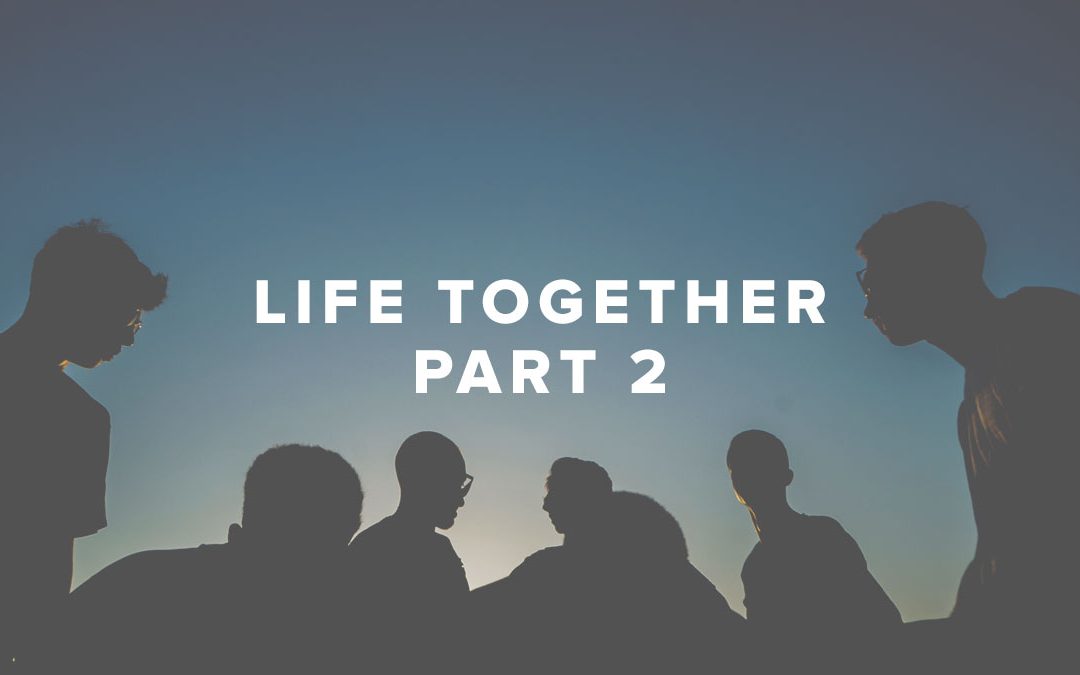In chapter two of Life Together, Dietrich Bonhoeffer lays out what he believes to be a well-structured day for both a Christian community and the individual living in the community. He covers a lot in the chapter and there are many things to glean from it. However, I’d like to focus on one aspect of the chapter that seems to run as a theme throughout, and that is praying and reading the Bible… at the same time. I crowd those two together as one in the same discipline, because that seems to be what Bonhoeffer does in the chapter. He encourages believers to pray the Scriptures daily. This is a foreign concept to many of us, but it can be a helpful one if we stick with it and implement it into our daily routines.
For Bonhoeffer, each day is a new day and a new chance for God to work wonders; a clean slate.
“For Christians, the beginning of the day should not be burdened and oppressed with besetting concerns for the day’s work. At the threshold of the new day stands the Lord who made it. All the darkness and distraction of the dreams of night retreat before the clear light of Jesus Christ and his wakening Word. All unrest, all impurity, all care and anxiety flee before him.” (43)
Now, I understand that there are morning people and there are night people. Whichever is more peaceful for you or wherever your energy abounds, I think it is true to what Bonhoeffer is saying that you set aside a certain time in order to engage God through the Bible by reading and praying the Scriptures. And if you don’t know how to do this, start at the Psalms. Why? Because Jesus did, along with every Jewish person who came before him and countless after.
“The Psalter is the prayer book of Jesus Christ in the truest sense of the word. He prayed the Psalter and now it has become his prayer for all time… The Psalter is the vicarious prayer of Christ for his Church.” (46)
Psalms aren’t just religious poems. They are, quite literally, a collection of prayers that have been used by the Jewish and Christian communities for centuries. From the Psalms, Bonhoeffer says we learn three specific things:
1. What prayer means. “It means praying according to the Word of God, on the basis of promises.” (47)
The Psalms are filled with prayers and songs that are based on God’s promises in the Old Testament. We may not live in the ancient Middle East, but these promises ring a tone of truth for us today as well. Furthermore, many of these promises were fulfilled in Jesus. So, prayer is “praying according to the Word of God, on the basis of these promises” (47) instead of simply a checklist of our desires.
2. What we should pray.
In the Psalms, there are all sorts of circumstances that people are praying for and there are a lot of different emotions that come from those circumstances. No matter what you’re going through, the Psalms provide a language for you to pray when you may not have the words yet.
3. How to pray as a community.
Again, this is a foreign concept to many of us since we are accustomed to praying by ourselves, for ourselves. But that is completely contrary to the way of Jesus, according to Bonhoeffer. We live in community, and we pray in community – in the present, based on the past. “…the psalms teach us to pray as a fellowship. The Body of Christ is praying, and as an individual on acknowledges that his prayer is only a minute fragment of the whole prayer of the Church. He learns to pray the prayer of the Body of Christ. And that lifts him above his personal concerns and allows him to pray selflessly” (48-49). There are many voices who have gone before us, and we are missing out if we do not listen to what they have to say to our current affairs of life as we learn to live alongside one another.
The Psalms and all of Scripture before and after them tell the story of how God has worked, is working, and will work within the world. Though it was written in a certain context, the story is being passed to us daily, and it is wise of us to engage it that way.
“All this is not mere reverie but holy, godly reality. We are torn out of our own existence and set down in the midst of the holy history of God on earth. There God dealt with us, and there He still deals with us, our needs and our sins, in judgment and grace. It is not that God is the spectator and sharer of our present life, howsoever important that is; but rather that we are the reverent listeners and participants in God’s action in the sacred story, the history of the Christ on earth. And only in so far as we are there, is God with us today also.” (53-54)
We take this day-by-day. The key to holiness is consistency. Holiness is not simply a sacred experience or disembodied experience. Often times, holiness is simply the routine of establishing your time to “meet God” during the day, day after day. God is always with us, true. However, with the way our days are structured and all the business and chaos of it all, it doesn’t seem as though we actually believe that. So what if we actually structured our day as if we did?
“A day at a time is long enough to sustain one’s faith; the next day will have its own cares” (73).

